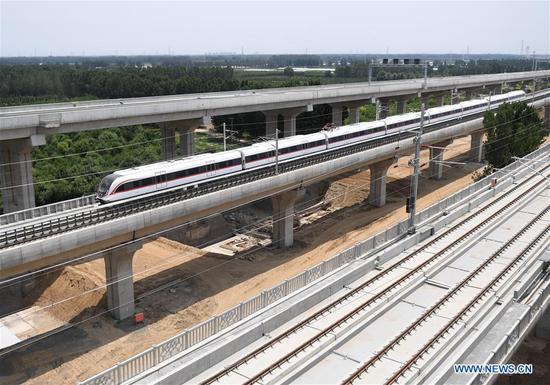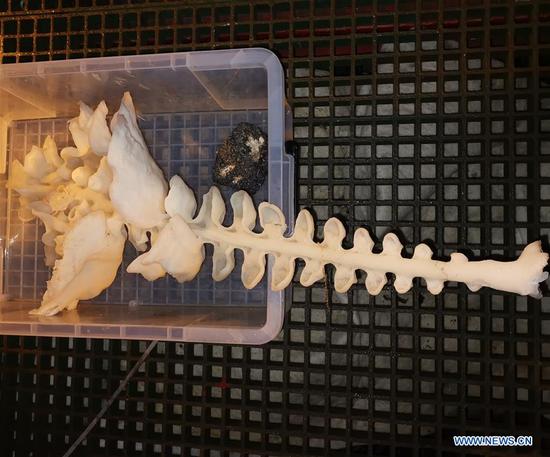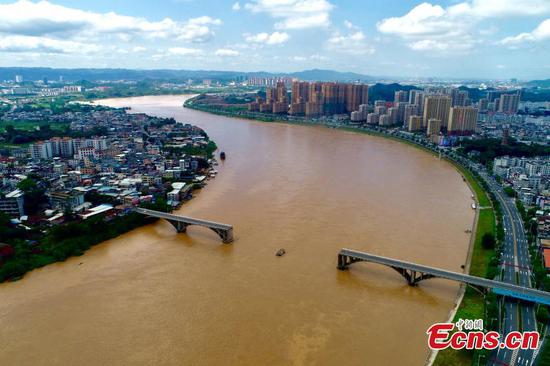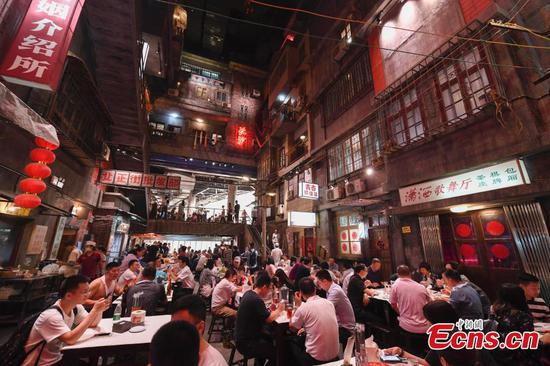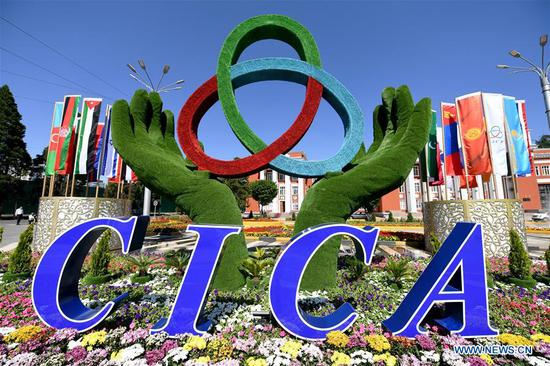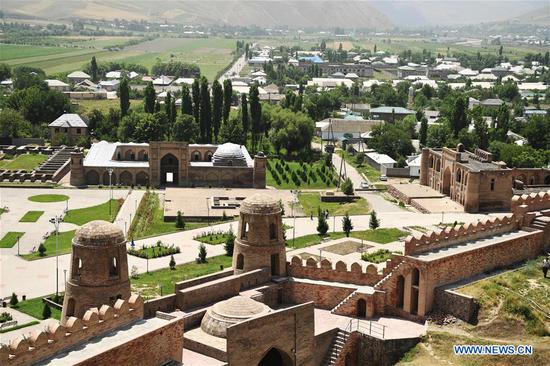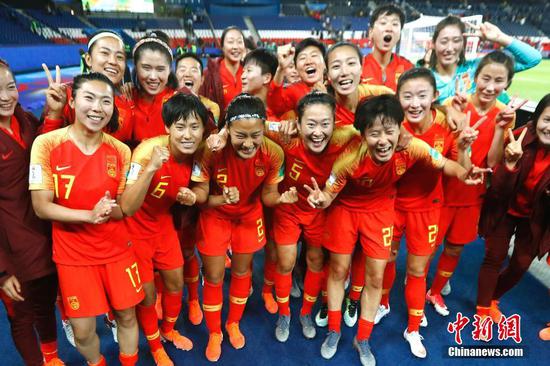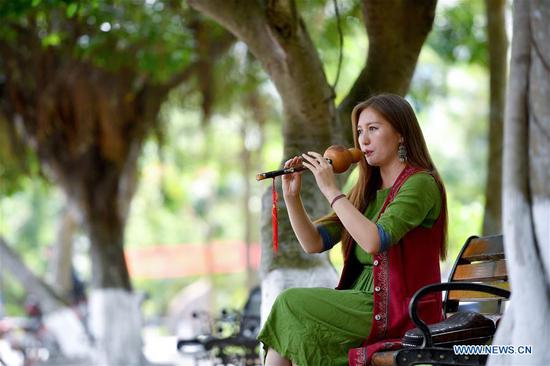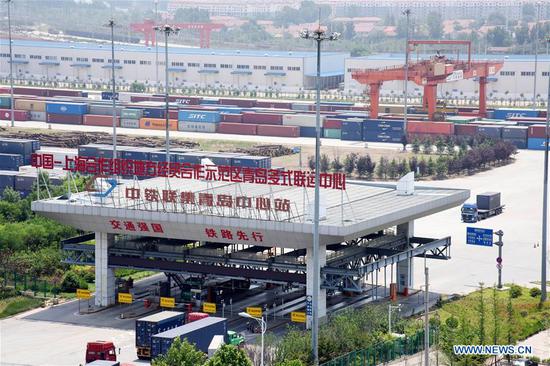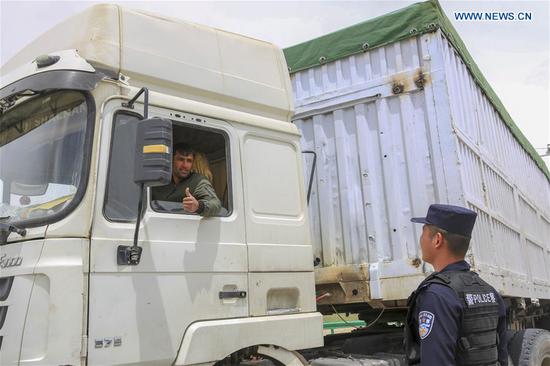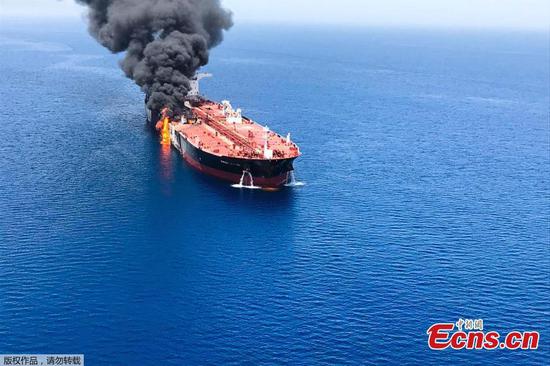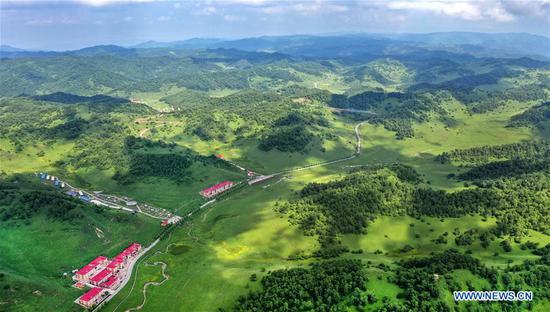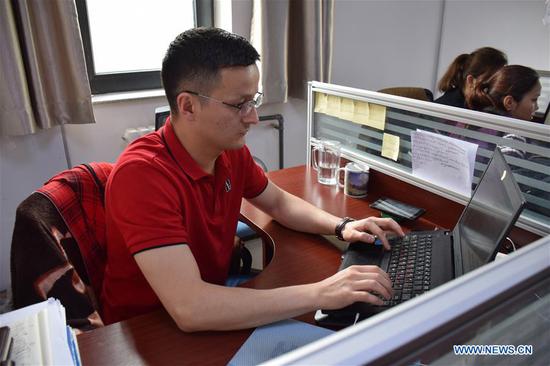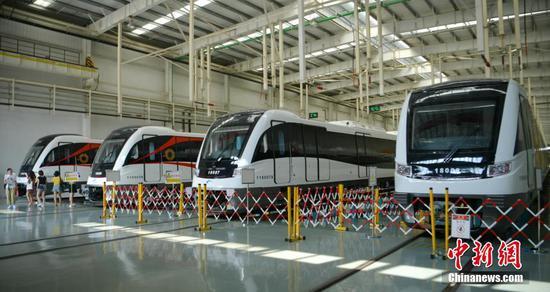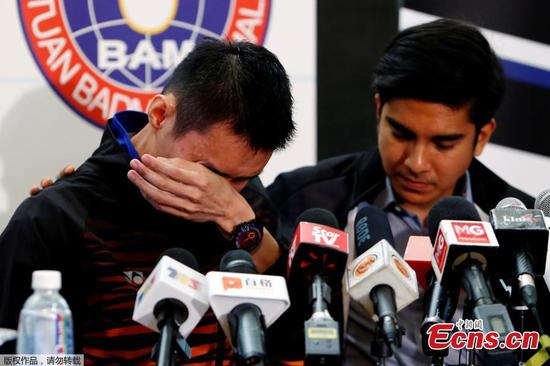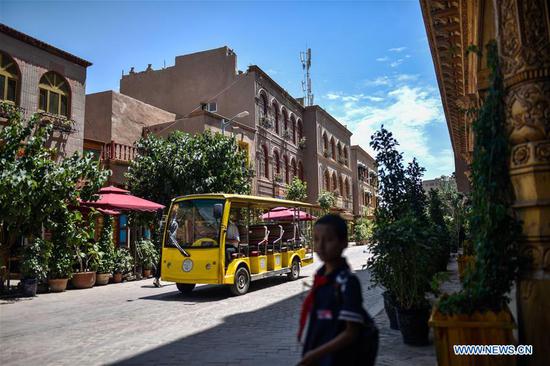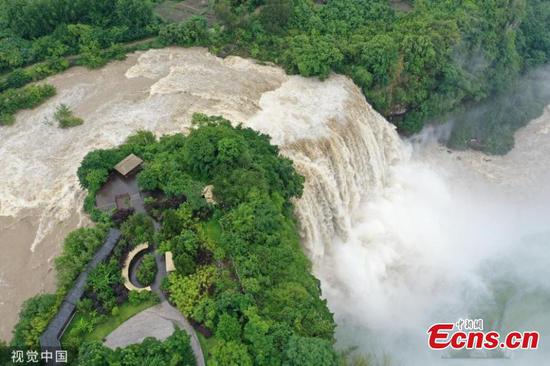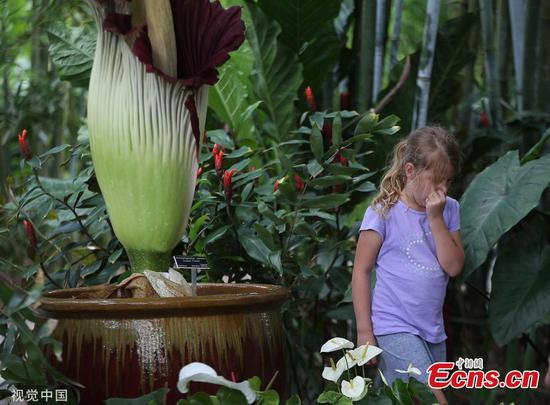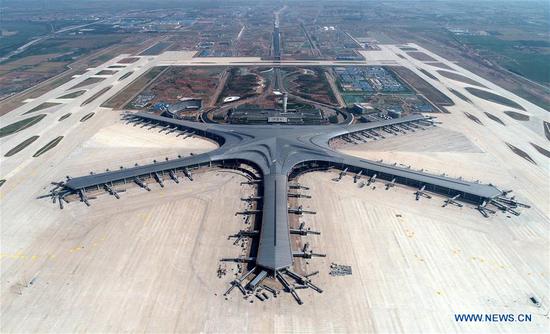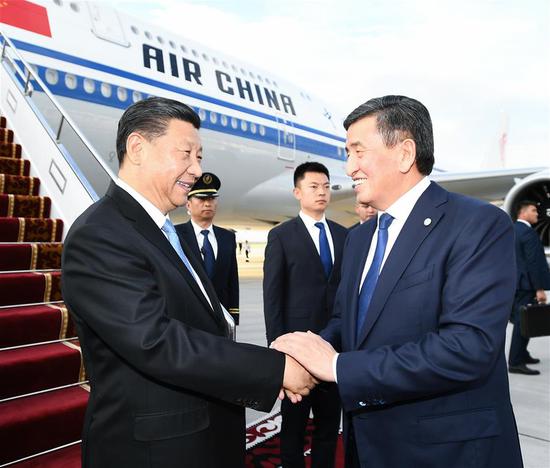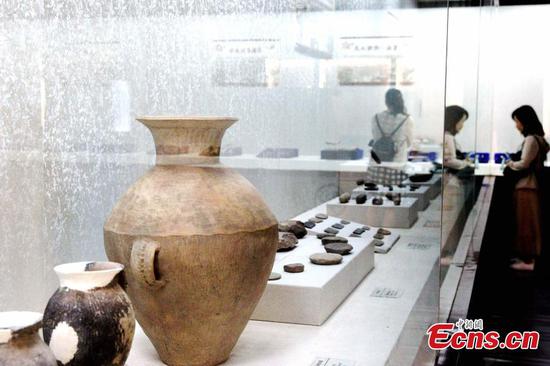
Leaders and representatives of member countries and dignitaries of observer states and international and regional agencies gather at the fifth summit of the Conference on Interaction and Confidence Building Measures in Asia in Dushanbe, Tajikistan, on Saturday. (Photo/Xinhua)
Proposal at conference helps guide regional cooperation, diplomat says
President Xi Jinping's vision for a better future for Asia at the just-concluded fifth summit of the Conference on Interaction and Confidence Building Measures in Asia represents the consensus of regional countries on the future course for development, officials and experts said.
Hailing Asia as one of the most dynamic regions in the world in his speech at the summit held in the Tajik capital of Dushanbe, Xi proposed to build the continent into a secure, stable, open and inclusive region where countries enjoy mutual respect and trust, development and prosperity as well as cooperation and innovation.
State Councilor and Foreign Minister Wang Yi said at the conclusion of Xi's five-day Central Asian trip on Sunday that Xi's proposal at the summit serves as a guideline for the direction of regional cooperation.
Xi's call for mutual respect and trust among countries results from the recent resurgence of a Cold War mentality in the world, and Xi also stressed the need to build a secure and stable Asia as a consequence of various traditional and nontraditional threats, Wang said.
The senior diplomat said that the relapse of the so-called clash of civilizations results in the need for countries to be open and inclusive while cooperation and creativity are necessary approaches to resolve problems and ensure sustainable development.
Xi wrapped up his state visits to Kyrgyzstan and Tajikistan on Sunday. During the Central Asian trip, which took place four days after his state visit to Russia, Xi also attended the 19th Shanghai Cooperation Organization Summit and the fifth summit of the Conference on Interaction and Confidence Building Measures in Asia, held in the two countries.
Xi's visits to Russia and the two Central Asian nations are part of China's diplomatic efforts to promote building global partnerships, advance Belt and Road cooperation and firmly safeguard world peace and stability, Wang said.
Xi has used the multilateral meetings to emphasize China's commitment to multilateralism and an open economy as well as its firm resolve to build good relations with its neighbors.
Saying China pursues extensive consultations, joint contributions and shared benefits in global governance, Xi said it firmly upholds the United Nations-centered international system and the multilateral trading system with the World Trade Organization at its core.
Xi also urged countries to promote liberalization and facilitation of trade and investment, and conclude at an early date the Regional Comprehensive Economic Partnership and other documents on regional integration.
Oh Ei Sun, a senior fellow at the Singapore Institute of International Affairs, said that against the backdrop of rising isolationism and protectionism, it is especially important to emphasize multilateralism and free trade.
Xi highlighted regional stability at both summits, demonstrating China's determination to help the region maintain peace and security, said Kyrgyz parliamentarian Makhabat Mavlyanova.
Mavlyanova said Xi's proposals help countries in the region enhance mutual trust and step up efforts to promote regional security and development in the context of rising unilateralism and protectionism.
Xi told foreign leaders that China will forge friendly relations with its neighbors, and he called on parties to settle disputes over territorial sovereignty and maritime rights and interests through peaceful negotiations. He said Beijing is committed to openness and win-win cooperation and wants to share development opportunities with other countries, particularly through Belt and Road cooperation.
Zafar Sharibov, deputy general manager of Tajikistan-China Mineral Corp, commended China's pursuit of a peaceful development path and its commitment to share development opportunities with all parties.
Terence Chong Tai-Leung, executive director of the Lau Chor Tak Institute of Global Economics and Finance at the Chinese University of Hong Kong, said he was impressed by Xi's emphasis on the importance of inclusiveness and mutual learning among different cultures.









